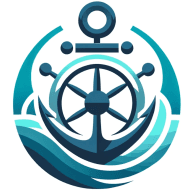6 Most Important Qualities to Look for in a Maritime Logistics Provider
In today's globalized economy, choosing the right maritime logistics provider can make or break a business. From ensuring reliable deliveries to implementing cutting-edge tracking technologies, the best providers offer a range of crucial services. This article explores the key qualities that set top-tier maritime logistics companies apart, helping businesses navigate the complex world of international shipping with confidence.
- Reliability: Cornerstone of Maritime Logistics Success
- Real-Time Tracking Revolutionizes Shipping Decisions
- Global Network Ensures Seamless International Shipping
- Adaptability: Key to Navigating Market Shifts
- Eco-Friendly Practices Shape Future Maritime Logistics
- Specialized Cargo Expertise Safeguards Unique Shipments
Reliability: Cornerstone of Maritime Logistics Success
When choosing a maritime logistics provider, reliability stands out as the paramount quality. In an industry where timing and the condition of goods are crucial, having a provider that consistently meets delivery deadlines and maintains the integrity of cargo is essential. For instance, if perishable goods like seafood or pharmaceuticals are not transported under the specified conditions and within the required timeframe, it can lead to significant losses. This emphasizes not just the effectiveness but also the financial impact of selecting a reliable logistics partner.
The unpredictability of sea transportation, influenced by weather conditions, port delays, and other logistical challenges, makes reliability even more critical. A dependable provider can effectively navigate these challenges, ensuring that your business operations are minimally impacted by external factors. Trusting your logistical needs to a reliable partner not only secures your supply chain but also strengthens business relations and boosts your company's reputation in the market. Hence, choosing a provider that you can count on is fundamental to both the short-term success and long-term sustainability of your business.

Real-Time Tracking Revolutionizes Shipping Decisions
Advanced technology integration for real-time shipment tracking is crucial in modern maritime logistics. A top-tier provider should offer cutting-edge systems that allow clients to monitor their cargo's location and status at any given moment. This real-time visibility enables better decision-making and helps companies respond quickly to any potential issues or delays.
Such technology also often includes features like predictive analytics, which can forecast potential disruptions and suggest alternative routes. To stay ahead in the competitive shipping industry, businesses should prioritize partnering with logistics providers that invest heavily in advanced tracking and monitoring technologies.
Global Network Ensures Seamless International Shipping
Global network coverage and port connections are vital aspects of a reliable maritime logistics provider. An extensive network ensures smooth cargo movement across different regions, reducing transit times and minimizing the risk of delays. Well-established connections with various ports worldwide allow for more efficient loading, unloading, and transshipment processes.
This broad reach also provides flexibility in route planning, enabling companies to adapt to changing market demands or unexpected disruptions. When choosing a maritime logistics partner, it's essential to evaluate their global presence and the strength of their port relationships to ensure seamless international shipping operations.
Adaptability: Key to Navigating Market Shifts
Flexibility in adapting to changing market conditions is a key quality for any top-tier maritime logistics provider. The shipping industry is prone to rapid shifts due to factors like economic fluctuations, geopolitical events, and natural disasters. A provider that can quickly adjust strategies, routes, and services in response to these changes is invaluable.
This adaptability might involve scaling operations up or down, offering alternative transportation modes, or providing temporary storage solutions during unforeseen circumstances. Companies should seek out logistics partners that demonstrate a track record of agility and innovation in the face of market challenges.
Eco-Friendly Practices Shape Future Maritime Logistics
Strong environmental sustainability practices are becoming increasingly important in the maritime logistics sector. A forward-thinking provider should have clear initiatives aimed at reducing their carbon footprint and minimizing environmental impact. This might include investing in eco-friendly vessels, optimizing route planning for fuel efficiency, or implementing waste reduction programs at port facilities.
Such practices not only contribute to global environmental efforts but can also lead to cost savings through improved efficiency. When selecting a maritime logistics partner, businesses should carefully consider the provider's commitment to sustainability and how it aligns with their own environmental goals.
Specialized Cargo Expertise Safeguards Unique Shipments
Expertise in handling specialized or hazardous cargo sets apart exceptional maritime logistics providers. Transporting items like chemicals, pharmaceuticals, or oversized equipment requires specific knowledge, equipment, and safety protocols. A provider with this expertise ensures that sensitive or dangerous goods are handled correctly, reducing the risk of accidents, damage, or legal issues.
They should be well-versed in relevant regulations and have a proven track record of successful specialized shipments. Companies dealing with unique cargo should prioritize finding a logistics partner with demonstrated experience and capabilities in their specific niche to ensure safe and compliant transportation.

